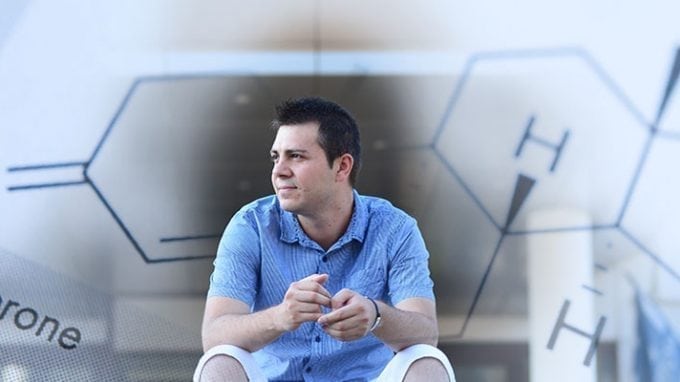Courtesy of Andromenopause.com
The form of a common male hormone may, in fact, lead to male infertility. Scientific studies conducted have concluded exogenous testosterone can cause significant side effects on men, arguably the most serious of which is on their ability to conceive children. The following is a brief article about exogenous testosterone, what it is, why some men might need it, how it is responsible for causing male infertility and the steps men can employ to counteract this unpleasant, difficult and perhaps life-altering development.
What is Exogenous Testosterone?

Why Would a Man Need to Use Exogenous Testosterone?
Testosterone impacts many systems within the male body. The substance helps stimulate a man’s libido, causes his reproductive organs to grow and function, builds muscles and strengthens muscle tone, stimulates bone growth and has a profound effect on mood and overall well-being. Men with low testosterone often are afflicted with symptoms such as weight loss, diminished sex drive, bone fractures, wasting muscles, fatigue and depression.
In instances when a man’s testosterone levels are critically low, or he is experiencing severe manifestations caused by the condition, a fairly common treatment is exogenous testosterone. Fortunately, in many cases, the substance has boosted testosterone levels and alleviated—if not eliminated—the bothersome symptoms.
How is Exogenous Testosterone Related to Male Infertility?
Though widely regarded and medically prescribed as a therapy, exogenous testosterone does produce side effects. The results of a recently concluded study, which was published in the medical periodical Translational Andrology and Urology, showed repeated doses of exogenous testosterone lowers the testes ability to produce sperm. Natural testosterone is critical to normal sperm production. Unfortunately, exogenous testosterone suppresses the body’s ability to make the substance naturally. Ergo, some men that are prescribed hormone replacement therapy for low testosterone experience lower sperm counts and infertility issues.
This situation presents an intriguing problem for the medical community. The study further revealed symptomatic hypogonadism—the scientific name for diminished low testosterone—is only expected to grow in the coming years. It is estimated that by 2025 in excess of 6.5 million men, both of young and old ages, will be saddled with the condition. The study later revealed sperm count returned to normal for many men who got off hormone replacement therapy.
What Can Be Done to Circumvent This Problem?
Unfortunately, many men with low testosterone need at least a small dose of the exogenous variety to find relief of the symptoms associated with the condition. However, men interested in fathering children now might need to consider other therapeutic regiments. Fortunately, there are certain steps men can take that may increase testosterone levels in a natural manner.
Get Adequate Rest
Medical research has proven men who do not receive healthy amounts of sleep saw a reduction in testosterone. It is recommended men get anywhere from seven to nine hours of sleep each evening.
Exercise
Physical exertion is said to boost testosterone levels. Exercise also gives men increased energy and might help them sleep better.
Lose Weight
Overweight men are believed to be at greater risk for developing low testosterone levels.
Limit Sugar Intake
Medical research has concluded sugar may lower testosterone levels by up to 25 percent. It is recommended men limit their consumption of foods with high sugar contents, if not avoid them altogether.
Supplement Diet
A number of vitamins and minerals are believed to increase testosterone production including zinc, in addition to Vitamins A, B6 and C. These substances are plentiful in a number of common foods and are also available in vitamin supplements.
Andromenopause.com is a guide for aging adults looking to master life’s turning points, both menopause and andropause, with chronobiology.





